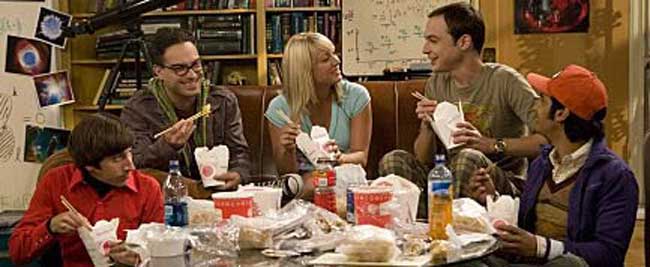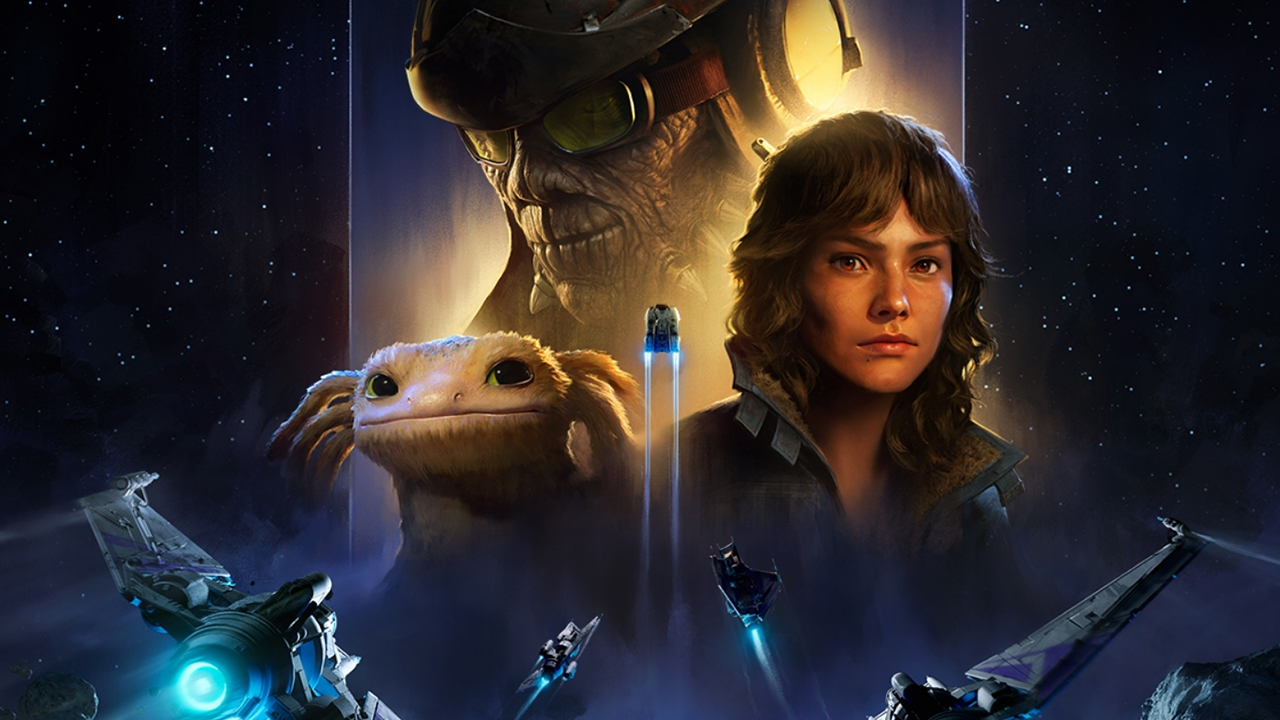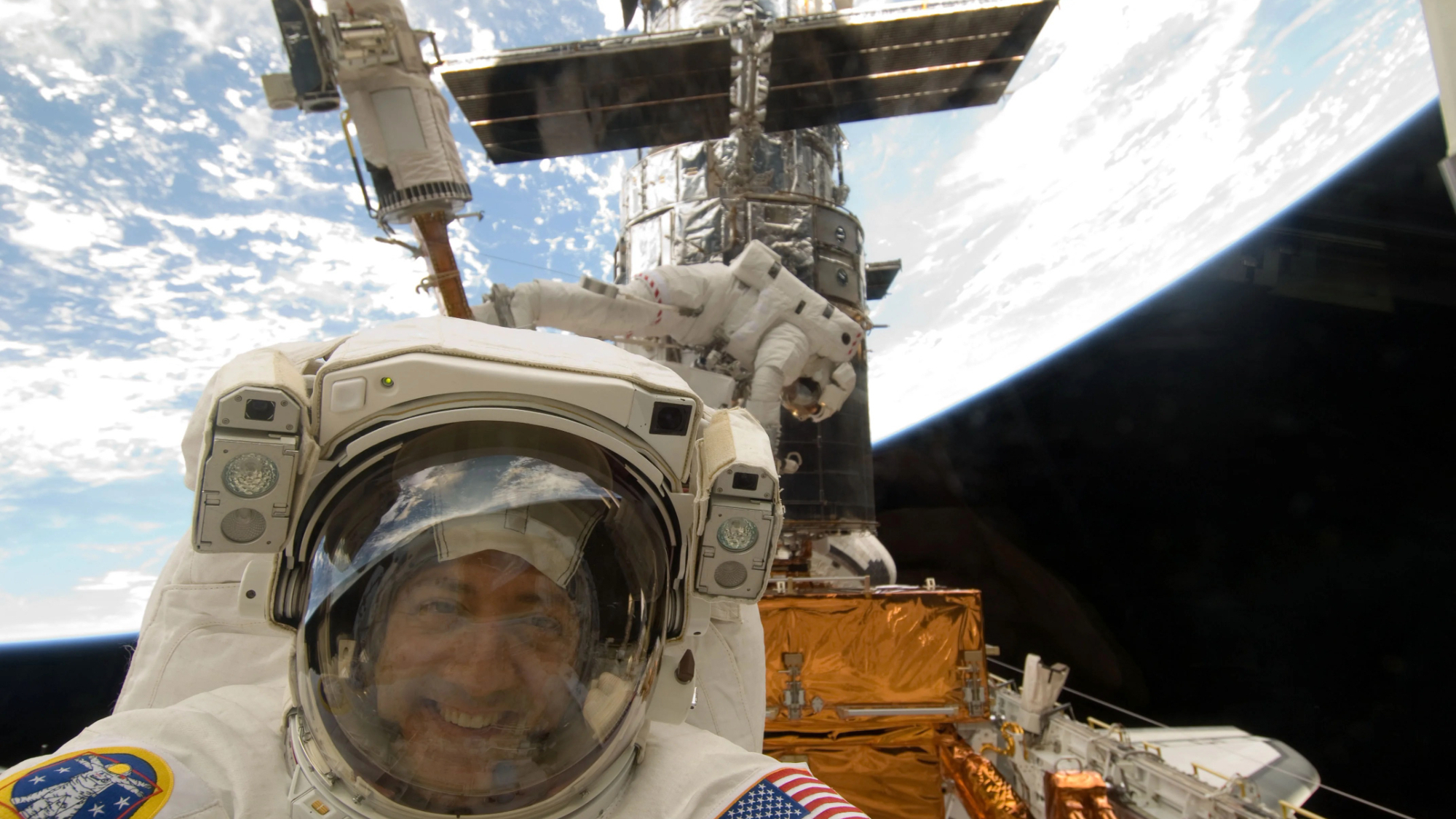'Big Bang Theory' Becoming Favorite of Audience It Lampoons

Flipthrough the array of scripted television today and just about every societalclique has its own show: high schoolers, twentysomethings, thirtysomethings,lawyers, doctors, cops. Heck, even vampires get plenty of airtime.
But what about the geeks?
Sure, a few shows have geek characters like Comic Book Guy on ?The Simpsons? orDwight Schrute of ?The Office,? but no television show actually focused on thevery real lives of the nerdy until CBS?s sitcom ?The Big Bang Theory,? (whichpremieres its third season on Monday, September 21 at 9:30 p.m. EST).
Set in the shadow of CalTech in Pasadena, CA, ?The Big Bang Theory? revolvesaround the daily lives of physicist roommates Leonard Hofstadter (JohnnyGalecki), Sheldon Cooper (Jim Parsons) and their friends/colleagues HowardWolowitz (Simon Helberg) and Rajesh Koothrappali (Kunal Nayyar). What many inthe mainstream would label as the nerdiest of the nerdy, these four are asbrilliant in their professions as they are their knowledge of sci-fi and popculture, but when it comes to women and social interaction...well, let?s justsay they?re stunted, a lot. It?s only when Cheesecake Factory waitress Penny(Kaley Cuoco) moves in across the hall that the guys get some lessons on how tobefriend and interact with an average woman. And over two seasons, Pennycontinues to be indoctrinated into the perplexing, yet often charming ways ofthis nerd pack.
A modest hit when it debuted in 2007, it took awhile for geek audiences toembrace the show. Many initially assumed the series was just making fun of itscharacters, with their myriad of uptight tics, slightly nasally voices, andcomic book character-emblazoned wardrobe.
?When I first saw the show, I admit I found it to be a little bit overdone,?says Craig Byrne, a 31-year-old writer of TV companion books and fan sites(KryptonSite). ?But then I realized that the fact that it's grossly overdone iswhat makes it funny.?
Byrne says he stuck with the show and it quickly became one of his favorites.?I love ?The Big Bang Theory? because not only do [the writers] incorporategeek elements into their dialogue, but the characters have a lot of heart. It'salmost as though they had advance mental development but somewhere along theline forgot to advance socially. The addition of Penny to their circle hasgiven the characters a chance to grow, and has given Penny a chance to learn ofa sideof herself that she never knew existed.?
Get the Space.com Newsletter
Breaking space news, the latest updates on rocket launches, skywatching events and more!
And Byrne isn?t alone in his conversion. According to Nielsen figures, thesecond season of ?The Big Bang Theory? averaged 10 million viewers, up 20% fromits freshman season. A big chunk of that increase came from the coveted, andvery geek-centric, 18-49 male demo. Their approval started a swell of positivebuzz among nerd-centric viewers that understood that co-creators Chuck Lorreand Bill Prady weren?t mocking their kind but actually celebrating a hugeportion of the population that look, act, and talk a lot like their characters.
?We?re writing about ourselves,? Prady laughs in an exclusive interview with Newsarama. ?My highly nerdishbackground is that I was a computer programmer. I?m also a science fiction fanand an obsessed ?StarTrek? fan. Whatever you want to call that group of people, nerds, or geeks,there?s a great history of portraying them homogenously; that they are all thesame with tape across the bridges of their eyeglasses and have pocketprotectors. The thing that I know from living in that world is that it?sremarkably heterogeneous. There are great differences and individual passions.What also exists is a greater respect for differences and a greaterunderstanding of difference. The real-life person that I knew that couldn?tspeak to women [a trait exhibited by Koothrappali], it was just an acknowledgedpart of his behavior and it was just dealt with. You say that?s not the guy toask to talk to those women over there. All of these things are just matter offact for us.?
Geeks are real people
Prady says that he and his writers made it an early goal to write these fourguys as real people, which meant including idiosyncrasies that sometimes comewith being a geek.
?One of the tasks of creating a series is to create interesting characters thatare distinct from each other,? Prady explains. ?We think very carefully aboutwhy one character might have a particular reaction that another characterdoesn?t share. The four of them have very different backgrounds. They have hadvery different paths through life that affect who they are. There are thingsthey love in common and there are things they don?t share. That also extends totheir fandom. I think they are generally game to indulge each other?s passionsbut I don?t think it?s uniform. By making them distinct, you make them peopleyou are interested in knowing.?
Or that you might already know. Fans often cite the fact that they see plentyof parallels in the show?s characters to their own friends and even themselves.
Will Welsh, a 36-year-old development editor says that Leonard serves as themost relatable member of the group. ?He is painfully aware that he?s a geek. Hedoesn?t always seem comfortable in his own skin, which is a feeling that I?vehad come and go throughout most of my life. The other guys on the show, theydon?t even recognize that they?re geeks?they just are and rarely viewthemselves from outside that window. Leonard teeters on not being a geek andoccasionally wishes he wasn?t so geeky, so I see myself a lot in him.?
Leonard actually represents the more socially adept end of the scale thanks tohis common problem with attracting women so he is the character most fans saythey identify with the most. But the show?s undeniable break-out character isSheldon Cooper. He represents the extreme end of the nerd scale with hisobsessive routines, clueless understanding of most humor, and utter lack ofhumility about his mental superiority. What could have become a woefully badclich? in most actors? hands has instead become a delightfully exasperatingmisfit in large part to Parson?s beguilingly earnest approach to playingSheldon.
?The Sheldon character is a riot,? says Tom Wakeley, a retired electricalengineer who's been a fan of the series from the beginning. ?He is soinflexible, smug, and oblivious. He reminds me of some people that I met incollege and during my career.?
Byrne added, ?Sheldon represents many of the quirks and annoyances that we endup having but not always verbalizing. So what if he has a 'favorite spot' onthe couch - we all do. But I don't think I'm quite as socially judgmental asSheldon is. However, Sheldon totally seems to have stolen my wardrobe, with hisfrequent wearing of comic book-related t-shirts.?
Writing what you know
Prady says that the reason Leonard, Sheldon, Wolowitz, and Koothrappali mayresonate so well is because they all reflect many of the loves that live withinthe actual ?Big Bang? writers? room.
?In terms of their non-work passions, they come from the passions in the room,?Prady admits. ?For example, the deep and abiding love this writing staff hasfor Ron Moore?s ?BattlestarGalactica.? It is deep and rich and profound, and that?s why the characterslove it. And there is their love of ?Star Trek,? which by the way is notuniform in the room. There are people like me who know every episode of everysingle series and then there are people where ?Trek? is not their thing. Theonly thing we are united on is that none of us ever understood ?Babylon 5.? We?re all kind of mystified by ?Babylon 5,? he laughs.
The writers have even gone so far as to write nerdy pop culture icons intoepisodes, like last season with actress Summer Glau (?Firefly,? ?Sarah Connor Chronicles?).Prady says it satisfies their own geeky hearts and the audience too, so lookfor more of it this season.
?In episode six, Wil Wheaton (Wesley Crusher on ?Star Trek: The NextGeneration?) is going to be here and will play himself,? Prady reveals.?Because Wil lives very close to where our characters live in real life, it?snot inconceivable that they share a comic book store and they would encountereach other. Given that Wil is going to play himself, we are going to discoverthat Wil Wheaton is the one member of the ?Star Trek? family that Sheldonhates,? he laughs. ?We will learn that he loved Wesley Crusher but there was amoment between them in the past and ever since then Wheaton is his third mosthated person.?
And so it is that what comes natural to the writers to banter about in theroom, is now fodder for the scripts and in turn a revelation to an audiencethat finally feels like a show is finally speaking their language.
?For years, I felt rather out of place with my peers,? said Rob Young, the41-year-old Director of Grants & Foundations at Saint Francis University in Loretto, PA. ?Sports, something in which I was never interested, dominatedconversations. ?The Big Bang Theory? gives me a common ground to discuss suchthings. The fact that they take topics long considered ?uncool? by themainstream and can incorporate them into a successful show just amazes me. Andeven though they?re poking fun, they treat the culture with reverence.?
Remy Minnick, a thirtysomething IT professional in Los Angeles, says the showis always coming up with pop culture moments that feel plucked out of his orhis friends? lives. ?There?s an episode where Penny sleeps over on the couch.Sheldon comes in to do his Saturday morning ritual of watching ?Doctor Who?only to find Penny sleeping on the couch and it completely throws off his day.That was definitely a ?me? moment,? he laughs. ?I also know a female version ofSheldon who I introduced to the show and she out-Sheldoned Sheldon as shepointed out how he would never wear a Starfleet uniform to beam down to anotherplanet (a.k.a. the Ren Faire in ?The Codpiece Topology?) as he would bebreaking the prime directive and he should be wearing a disguise.?
He continues, ?The show is smart enough where they don't always go for the?obvious? joke. The guys are successful, they are sweet, they are the stars ofthe show and while the show is a comedy they aren't just used for comic relief.If it ever becomes all wedgies and pocket-protector jokes, then it's over forme.?
It's funny because it's real
Prady promises that?s not something fans will ever have to worry about. Infact, the show also takes great pride in the accuracy in which they write thecharacters? scientific professions. UCLA physics and astronomy professor DavidSaltzberg is a technical consultant for ?The Big Bang Theory? and has a hand inevery script.
?One of the things we decided from the beginning was that the science would beaccurate and when the characters talked about their work it would belegitimate,? Prady explains. ?When Chuck (Lorre) and I wrote the pilot, we hadtime to research ourselves and then we had someone check our work. In thecrunch of doing a series every week, you don?t have that luxury. Although it?sinteresting because in our writers? room, a couple of them have a very strongscience background so we are often able to get it close enough in the scriptthat David Saltzberg can look at it and say that ?it?s almost right but let metweak these words.? Sometimes what he?ll says is, ?What you put in there istechnically correct but it doesn?t sound like the way we say it, so let meadjust that for you.? And then sometimes we just don?t have time, and in thescript we?ll put ?science to come? and ask him to fill it in.?
On some shows that would be extra effort not worth the time, but Prady saysit?s another way to show respect and prove they care to be precise when itcomes to their very smart fanbase. So far so good, as Prady says they don?t getmuch critical feedback.
?I?m not really aware of much,? he chuckles. ?Every now and then I know therehave been some science questions that David has answered. He?s pretty confidantthat he hasn?t made any mistakes. The only outstanding mistake that I am awareof in the show comes from the world of personal grooming and tonsorial arts,which is that in the third-season finale, Sheldon mischaracterizes what a ?vandyke? is and we mean to address that at some point.?
And Prady wants it to be known he?s not being Sheldon-like dismissive when hesays that. It comes from being secure in the knowledge that he and his team areworking hard to make sure ?The Big Bang Theory? is being true to itself and itsaudience.
?Personally, if I weren?t involved in the show, I would like watching a showwhere I identified with the characters and could say, ?Hey, that?s me!? So ifother people are having that reaction to us, then ?Yay!??
Join our Space Forums to keep talking space on the latest missions, night sky and more! And if you have a news tip, correction or comment, let us know at: community@space.com.









